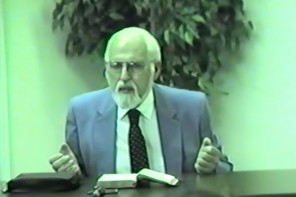It was well into George H.W. Bush’s term when I learned that my mother had voted for Jimmy Carter back in the day. My mother, a good evangelical Christian, has always been mum about who she casts her vote for and we never heard a peep from anyone in the pulpit about who to vote for.
Now, at least 31 pastors are challenging the IRS law that prevents them from endorsing candidates in the pulpit as part of the Alliance Defense Fund’s “Pulpit Freedom Sunday.” Americans United for the Separation of Church and State has filed complaints against six of the pastors.
I’m mystified by the whole thing, actually. Much has changed in churches since my mother’s secretive ballot box visits. The churches have become so polarized over politics and social “values” issues like abortion and same-sex marriage, that I wonder how hard it can be to know who your pastor supports or would urge you to vote for if they could (or dared).
I think of my own church—a liberal outpost in a sea of conservative churches in Columbia, South Carolina. It’s not a far stretch to say who any one of our members, let alone our clergy, would support. I would never endorse a candidate from the pulpit, but one doesn’t have to look too far down the body of the senior pastor’s car to see who he supports. He never has to say a word from the pulpit and I imagine it’s much the same in many more conservative churches. You don’t really have to ask who the pastor will be voting for and who he would prefer you vote for.
I have to admit, I’ve been wrong about these assumptions before. I discovered, after giving a sermon where I did sort of skewer Republicans more than Democrats, that we did have at least one Republican in the congregation—a gay Republican at that. He challenged my treatment of Republicans in that sermon and since that time we have become best friends—a true reaching across the divide to try to understand one another. It’s something I hope will become a larger trend in churches—but I’m not holding my breath.
It remains to be seen if these pastors’ challenge to the IRS will bear the ultimate fruit they seek—a ruling from the Supreme Court allowing them to exist tax-free as churches will continue politicking from the pulpit—or whether they’ll lose their tax-exempt status for their actions. Either way, the stunt points up a larger problem that the segregation on Sunday morning goes far beyond racial lines—it’s drawn on political lines as well—the like-skinned as well as the like-minded huddling together once a week.


